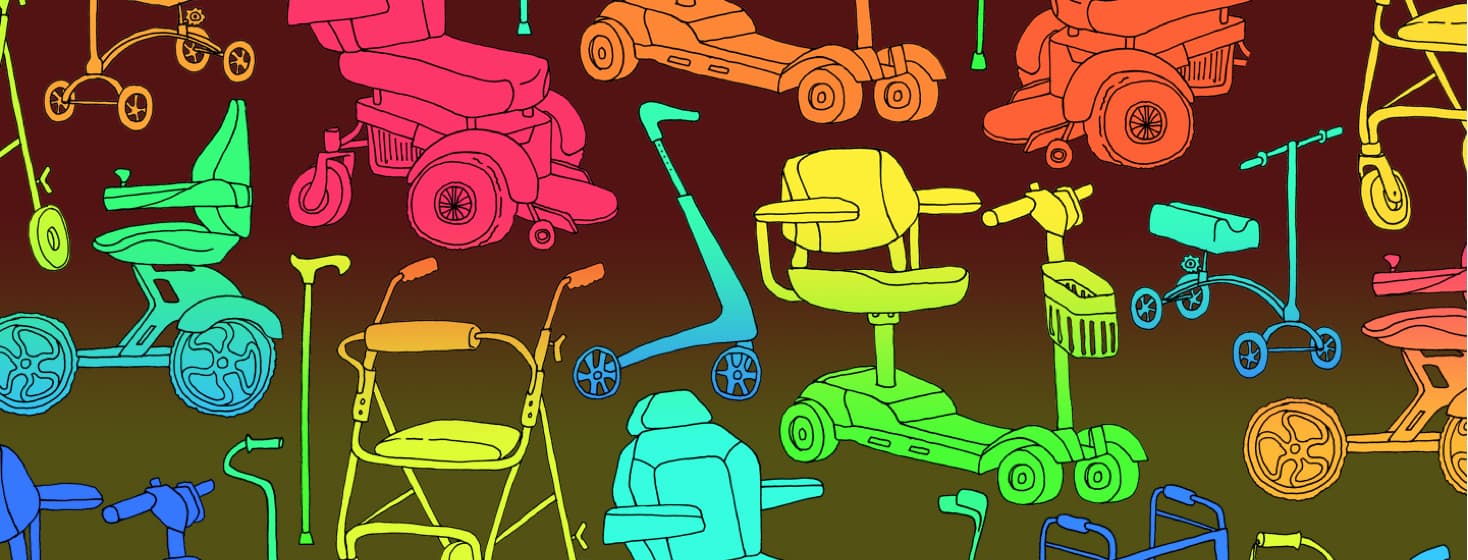MOBILITY AWARENESS
There seems to be awareness for everything these days. From celebrations on a daily and weekly basis to monthly, with an apparent heightened sense to bring attention to multiple health conditions and even more trivial events. There is Mustache March, Jazz Appreciation in April, and National Ice Cream Month for July. However, did you know that May is Mobility Awareness?
Mobility affects millions of individuals living with various illnesses. Some conditions may present with visible limitations such as multiple sclerosis and paralysis. However, others are not so apparent to the naked eye; from heart failure and COPD to sickle cell anemia. Thankfully there are organizations such as NMEDA (National Mobility Equipment Dealers Association) that work annually to bring attention to Mobility Awareness.2
What is mobility?
Merriam-Webster dictionary defines mobility as “the quality or state of being mobile or movable” and “ability or capacity to move.” An individual's state and mobility can be impaired as a direct result of health. While physical limitations can vary, mobility assistive devices such as wheelchairs and walkers can bring much-needed aid to those impacted.1
In the past I’ve personally experienced a mobility impairment while having an LVAD and wound vac simultaneously. The striped lines adjacent to handicap parking (access aisle) were a lifesaver for me at the time. With two medical devices, each requiring the transport of portable equipment attached to me, I found the ability to open vehicle doors as wide as possible provided me with the mobility assistance I needed to enter and exit. The quality of an individual’s mobility can help with their physical power, mental state of being, and overall quality of life. Mobility can bring a sense of empowerment while one holds onto or even regains independence.
Heart failure and mobility
How does heart failure affect mobility? Many heart failure patients experience symptoms such as fatigue, shortness of breath, and fluid retention. Others may need the assistance of medical equipment such as portable oxygen concentrators. Any one of these can directly impact mobility.
From walking to performing daily chores, heart failure can cause physical impairments. Walkers with built-in seating can be used to aid in cooking and cleaning in the home; or activities outside the home. At times my shortness of breath has limited my ability to walk around the grocery store. I yearn for the days that I can literally run in the store and run back out. Instead, I often find myself waiting for store-provided electric wheelchairs. While the stares are not pleasant, the freedom to shop free of shortness of breath is priceless.
Spread mobility awareness
While heart failure is one of many medical conditions that can impair mobility, awareness efforts may bring compassion and understanding. From parking in the access aisle adjacent to handicap parking to the blank stares many endure while riding in electric wheelchairs. Awareness can help educate some while providing support to others.
Has heart failure affected your mobility? Share your story with us by clicking the button below.

Join the conversation